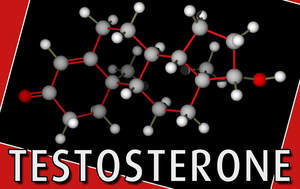Introduction to Secondary Hypogonadism
Secondary hypogonadism, a condition characterized by the inadequate production of testosterone due to a dysfunction in the pituitary gland or hypothalamus, has been increasingly recognized as a significant health concern among American men. This condition not only affects physical health but also has profound implications on the social life of those affected. Understanding the social impact of secondary hypogonadism is crucial for developing comprehensive treatment strategies that address both the physiological and psychosocial aspects of the disorder.
The Physiological Basis of Secondary Hypogonadism
Secondary hypogonadism arises when the pituitary gland fails to secrete sufficient luteinizing hormone (LH) and follicle-stimulating hormone (FSH), which are essential for stimulating the testes to produce testosterone. Common causes include obesity, stress, and certain medications. The resultant low testosterone levels can lead to a variety of symptoms, including decreased libido, fatigue, and mood disturbances, all of which can significantly impact a man's social interactions and overall quality of life.
Impact on Social Interactions
Men with secondary hypogonadism often report a diminished interest in social activities, which can lead to social isolation. The fatigue and lack of energy associated with low testosterone levels make it challenging to engage in social events, leading to a withdrawal from social circles. Furthermore, the decreased libido can strain intimate relationships, contributing to feelings of inadequacy and further social withdrawal.
Effects on Emotional Well-being
The emotional toll of secondary hypogonadism cannot be overstated. Men may experience increased irritability, depression, and anxiety, which can exacerbate social difficulties. These emotional challenges can create a vicious cycle, where social isolation leads to worsening mood, which in turn leads to further isolation. Addressing these emotional aspects is critical for improving the social life of men with this condition.
Professional and Occupational Consequences
In the professional realm, secondary hypogonadism can lead to decreased productivity and motivation. The cognitive effects of low testosterone, such as difficulty concentrating and memory issues, can impair job performance, potentially leading to career setbacks. This professional impact can further contribute to social isolation, as men may feel less confident in their professional abilities and less inclined to engage in work-related social activities.
Strategies for Mitigating Social Impact
To mitigate the social impact of secondary hypogonadism, a multifaceted approach is necessary. Medical treatment, such as testosterone replacement therapy, can help alleviate the physical symptoms and improve energy levels and mood. However, it is equally important to address the psychosocial aspects through counseling and support groups, which can provide a platform for men to share their experiences and coping strategies.
The Role of Community and Support Systems
Community and support systems play a vital role in helping men with secondary hypogonadism navigate their social challenges. Encouraging participation in community activities and support groups can help men rebuild their social networks and regain a sense of belonging. Additionally, educating family and friends about the condition can foster a more supportive environment, reducing the stigma and isolation often experienced by those affected.
Conclusion: A Call for Comprehensive Care
Secondary hypogonadism has a profound impact on the social life of American men, affecting their interactions, emotional well-being, and professional lives. A comprehensive approach to care, which includes both medical treatment and psychosocial support, is essential for improving the quality of life for those affected. By addressing the social ramifications of this condition, we can help men with secondary hypogonadism lead more fulfilling and connected lives.
Contact Us Today For A Free Consultation

- Secondary Hypogonadism: Impacts on Cardiovascular Health and Management Strategies [Last Updated On: February 25th, 2025] [Originally Added On: February 25th, 2025]
- Secondary Hypogonadism in American Men: Importance of Regular Check-ups for Early Detection and Management [Last Updated On: March 17th, 2025] [Originally Added On: March 17th, 2025]
- Genetic Insights into Secondary Hypogonadism in American Males: Diagnosis and Treatment [Last Updated On: March 17th, 2025] [Originally Added On: March 17th, 2025]
- Exercise Regimens for Managing Secondary Hypogonadism in American Males [Last Updated On: March 18th, 2025] [Originally Added On: March 18th, 2025]
- Secondary Hypogonadism's Impact on Sleep: Strategies for American Men [Last Updated On: March 18th, 2025] [Originally Added On: March 18th, 2025]
- Stress-Induced Secondary Hypogonadism: Impact and Management Strategies for American Men [Last Updated On: March 19th, 2025] [Originally Added On: March 19th, 2025]
- Secondary Hypogonadism: Impact on Energy and Treatment Options in American Males [Last Updated On: March 19th, 2025] [Originally Added On: March 19th, 2025]
- Secondary Hypogonadism's Impact on Body Composition in American Men [Last Updated On: March 20th, 2025] [Originally Added On: March 20th, 2025]
- Managing Secondary Hypogonadism: Comprehensive Support for American Men's Health [Last Updated On: March 20th, 2025] [Originally Added On: March 20th, 2025]
- Secondary Hypogonadism: Impacts on Mental Health and Treatment Approaches in American Men [Last Updated On: March 21st, 2025] [Originally Added On: March 21st, 2025]
- Secondary Hypogonadism's Impact on Cognitive Function in American Men [Last Updated On: March 21st, 2025] [Originally Added On: March 21st, 2025]
- Secondary Hypogonadism: Understanding Impacts and Managing Prostate Health in American Males [Last Updated On: March 21st, 2025] [Originally Added On: March 21st, 2025]
- Understanding Secondary Hypogonadism: Symptoms, Testing, and Treatment for American Males [Last Updated On: March 21st, 2025] [Originally Added On: March 21st, 2025]
- Secondary Hypogonadism: Impact on Immune System and Health in American Men [Last Updated On: March 22nd, 2025] [Originally Added On: March 22nd, 2025]
- Secondary Hypogonadism and Mood Disorders: Impact and Clinical Management in American Men [Last Updated On: March 22nd, 2025] [Originally Added On: March 22nd, 2025]
- Secondary Hypogonadism in American Males: Causes, Symptoms, and Treatment Options [Last Updated On: March 22nd, 2025] [Originally Added On: March 22nd, 2025]
- Secondary Hypogonadism and Diabetes: Prevalence, Link, and Management in American Men [Last Updated On: March 23rd, 2025] [Originally Added On: March 23rd, 2025]
- Secondary Hypogonadism and Hair Loss: Causes, Diagnosis, and Treatment Options for American Males [Last Updated On: March 23rd, 2025] [Originally Added On: March 23rd, 2025]
- Exploring Alternative Therapies for Secondary Hypogonadism in American Men [Last Updated On: March 23rd, 2025] [Originally Added On: March 23rd, 2025]
- Secondary Hypogonadism in American Men: Symptoms, Diagnosis, and Management Strategies [Last Updated On: March 23rd, 2025] [Originally Added On: March 23rd, 2025]
- Secondary Hypogonadism and Anemia: Causes, Symptoms, and Management in American Males [Last Updated On: March 24th, 2025] [Originally Added On: March 24th, 2025]
- Secondary Hypogonadism's Impact on Fat Distribution in American Men: Risks and Management [Last Updated On: March 24th, 2025] [Originally Added On: March 24th, 2025]
- Secondary Hypogonadism's Impact on Kidney Function in American Males: Symptoms, Treatment, and Management [Last Updated On: March 24th, 2025] [Originally Added On: March 24th, 2025]
- Understanding Secondary Hypogonadism: Symptoms, Causes, and Management Strategies for American Males [Last Updated On: March 24th, 2025] [Originally Added On: March 24th, 2025]
- Secondary Hypogonadism: Impacts and Management Strategies for American Men [Last Updated On: March 25th, 2025] [Originally Added On: March 25th, 2025]
- Managing Secondary Hypogonadism in American Males: Diagnosis, Treatment, and Support [Last Updated On: March 25th, 2025] [Originally Added On: March 25th, 2025]
- Secondary Hypogonadism's Impact on Skin Health in American Men [Last Updated On: March 25th, 2025] [Originally Added On: March 25th, 2025]
- Nutrition's Role in Managing Secondary Hypogonadism: Key Nutrients and Dietary Strategies [Last Updated On: March 25th, 2025] [Originally Added On: March 25th, 2025]
- Secondary Hypogonadism in American Males: Symptoms, Diagnosis, and Management Strategies [Last Updated On: March 25th, 2025] [Originally Added On: March 25th, 2025]
- Secondary Hypogonadism's Impact on Bone Density in American Men: Diagnosis and Management [Last Updated On: March 25th, 2025] [Originally Added On: March 25th, 2025]
- Environmental Factors and Secondary Hypogonadism in American Men: Impacts and Interventions [Last Updated On: March 25th, 2025] [Originally Added On: March 25th, 2025]
- Lifestyle Impact on Secondary Hypogonadism in American Males: Prevention and Management Strategies [Last Updated On: March 25th, 2025] [Originally Added On: March 25th, 2025]
- Secondary Hypogonadism and Fatigue: Diagnosis, Treatment, and Management for American Males [Last Updated On: March 26th, 2025] [Originally Added On: March 26th, 2025]
- Thyroid Function's Impact on Secondary Hypogonadism in American Males: Diagnosis and Management [Last Updated On: March 26th, 2025] [Originally Added On: March 26th, 2025]
- Secondary Hypogonadism: Impact on Libido and Health in American Males [Last Updated On: March 26th, 2025] [Originally Added On: March 26th, 2025]
- Sleep Disorders and Secondary Hypogonadism: Impact on American Men's Health [Last Updated On: March 26th, 2025] [Originally Added On: March 26th, 2025]
- Secondary Hypogonadism: Impacts on Health and Treatment Strategies for American Men [Last Updated On: March 26th, 2025] [Originally Added On: March 26th, 2025]
- Secondary Hypogonadism's Impact on Cognitive Function in American Men [Last Updated On: March 27th, 2025] [Originally Added On: March 27th, 2025]
- Secondary Hypogonadism: Impacts, Mental Health Needs, and Integrated Care Solutions for American Males [Last Updated On: March 27th, 2025] [Originally Added On: March 27th, 2025]
- Secondary Hypogonadism's Psychological Impact on American Men: A Comprehensive Overview [Last Updated On: March 27th, 2025] [Originally Added On: March 27th, 2025]
- Managing Secondary Hypogonadism: Stress, Strategies, and Support for American Males [Last Updated On: March 27th, 2025] [Originally Added On: March 27th, 2025]
- Secondary Hypogonadism and Autoimmune Diseases: A Rising Concern in American Men [Last Updated On: March 27th, 2025] [Originally Added On: March 27th, 2025]
- Exercise Boosts Testosterone and Alleviates Secondary Hypogonadism Symptoms in American Men [Last Updated On: March 27th, 2025] [Originally Added On: March 27th, 2025]
- Secondary Hypogonadism's Impact on Emotional Well-being in American Men [Last Updated On: March 28th, 2025] [Originally Added On: March 28th, 2025]
- Secondary Hypogonadism and Liver Health: Impacts and Management in American Males [Last Updated On: March 28th, 2025] [Originally Added On: March 28th, 2025]
- Secondary Hypogonadism: Impacts on Physical Performance and Management Strategies [Last Updated On: March 28th, 2025] [Originally Added On: March 28th, 2025]
- Secondary Hypogonadism and Cardiovascular Risks in American Males: A Comprehensive Overview [Last Updated On: March 28th, 2025] [Originally Added On: March 28th, 2025]
- Secondary Hypogonadism's Impact on Muscle Strength in American Men: Diagnosis and Treatment [Last Updated On: March 29th, 2025] [Originally Added On: March 29th, 2025]
- Secondary Hypogonadism in American Males: Symptoms, Monitoring, and Management Strategies [Last Updated On: March 29th, 2025] [Originally Added On: March 29th, 2025]
- Secondary Hypogonadism: Impact on Mood and Treatment in American Men [Last Updated On: March 30th, 2025] [Originally Added On: March 30th, 2025]
- Secondary Hypogonadism: Causes, Symptoms, and Comprehensive Management Strategies [Last Updated On: March 31st, 2025] [Originally Added On: March 31st, 2025]
- Managing Secondary Hypogonadism: Diagnosis, Hormonal Therapy, and Lifestyle Strategies for American Males [Last Updated On: March 31st, 2025] [Originally Added On: March 31st, 2025]
- Secondary Hypogonadism: Impact on Energy, Vitality, and Treatment Options for American Men [Last Updated On: April 4th, 2025] [Originally Added On: April 4th, 2025]
- Secondary Hypogonadism in American Males: Weight Management and Holistic Health Strategies [Last Updated On: April 4th, 2025] [Originally Added On: April 4th, 2025]
- Managing Secondary Hypogonadism: The Crucial Role of Diet and Nutrients [Last Updated On: April 4th, 2025] [Originally Added On: April 4th, 2025]
- Managing Secondary Hypogonadism: Diagnosis, Treatment, and Enhancing Quality of Life [Last Updated On: April 6th, 2025] [Originally Added On: April 6th, 2025]
- Secondary Hypogonadism: Impacts on Men's Relationships and Management Strategies [Last Updated On: April 8th, 2025] [Originally Added On: April 8th, 2025]
- Secondary Hypogonadism in American Males: The Critical Impact of Sleep Deprivation [Last Updated On: April 9th, 2025] [Originally Added On: April 9th, 2025]
- Managing Secondary Hypogonadism: A Holistic Approach for American Males [Last Updated On: April 9th, 2025] [Originally Added On: April 9th, 2025]
- Secondary Hypogonadism's Impact on Mental Clarity in American Men [Last Updated On: April 10th, 2025] [Originally Added On: April 10th, 2025]
- Community Support's Vital Role in Managing Secondary Hypogonadism in American Men [Last Updated On: April 10th, 2025] [Originally Added On: April 10th, 2025]
- Secondary Hypogonadism's Impact on Emotional Resilience in American Men [Last Updated On: April 11th, 2025] [Originally Added On: April 11th, 2025]
- Managing Secondary Hypogonadism: A Holistic Approach for American Men [Last Updated On: April 12th, 2025] [Originally Added On: April 12th, 2025]
- Secondary Hypogonadism: Impacts and Management Strategies for American Men [Last Updated On: April 12th, 2025] [Originally Added On: April 12th, 2025]
- Understanding and Managing Secondary Hypogonadism in American Males [Last Updated On: April 13th, 2025] [Originally Added On: April 13th, 2025]
- Secondary Hypogonadism in American Males: Diagnosis, Treatment, and Personalized Care [Last Updated On: April 13th, 2025] [Originally Added On: April 13th, 2025]
- Secondary Hypogonadism's Impact on Mental Health in American Males: Diagnosis and Treatment [Last Updated On: April 13th, 2025] [Originally Added On: April 13th, 2025]
- Understanding Secondary Hypogonadism: Causes, Symptoms, and Management for American Males [Last Updated On: April 15th, 2025] [Originally Added On: April 15th, 2025]
- Understanding Secondary Hypogonadism: Symptoms, Causes, and Management Strategies for American Men [Last Updated On: April 15th, 2025] [Originally Added On: April 15th, 2025]
- Secondary Hypogonadism: Impacts on Muscle, Bone, and Cardiovascular Health in American Men [Last Updated On: April 15th, 2025] [Originally Added On: April 15th, 2025]
- Secondary Hypogonadism's Impact on Self-Esteem in American Men: Causes and Management [Last Updated On: April 16th, 2025] [Originally Added On: April 16th, 2025]
- Secondary Hypogonadism: Understanding, Diagnosing, and Enhancing Vitality in American Men [Last Updated On: April 16th, 2025] [Originally Added On: April 16th, 2025]
- Nutrition's Role in Managing Secondary Hypogonadism in American Men [Last Updated On: April 16th, 2025] [Originally Added On: April 16th, 2025]
- Secondary Hypogonadism: Understanding Causes, Symptoms, and Management in American Males [Last Updated On: April 16th, 2025] [Originally Added On: April 16th, 2025]
- Secondary Hypogonadism: Importance of Regular Health Check-ups for American Males [Last Updated On: April 16th, 2025] [Originally Added On: April 16th, 2025]
- Lifestyle Factors and Secondary Hypogonadism: Impacts and Prevention Strategies for American Males [Last Updated On: April 18th, 2025] [Originally Added On: April 18th, 2025]
- Secondary Hypogonadism: Emotional Impact and Comprehensive Management in American Men [Last Updated On: April 19th, 2025] [Originally Added On: April 19th, 2025]
Word Count: 561





















